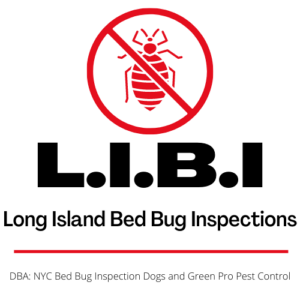If you’ve been reading the news recently you’ve probably come across several stories about the recent bed bug invasion of France. The bed bug problem is so bad that some French hotels are losing as much as $1600 per day in lost bookings. Tourists are rethinking their holiday plans and giving a Paris and other French hot spots a pass this season.
The French bed bug invasion shows us just how pervasive, and costly, these pests can be. It also raises an important question. How can international travelers avoid picking up bed bugs?
The Problem with Bed Bugs
Bed bugs have been our companions for thousands of years. During the 20th century they became less common in developed countries – largely due to the use of pesticides. As a result generations who heard the phrase “sleep tight and don’t let the bed bugs bite” had probably thought these pests were mythical creatures.
Unfortunately, bed bugs aren’t a myth and over the last few decades they’ve made a significant global return. These pests are once again infesting homes, hotels, and public spaces throughout the world. This resurgence can be attributed to a number of factors including resistance to pesticides, changes in pest control practices and, yes, international travel.
Bed Bugs and Your Health
Bed bug bites are the most common concern people have when dealing with these pests. Fortunately, bed bug bites are not known to transmit any diseases to humans. However, the bites can often cause uncomfortable itching and irritated rashes.
The reaction to bed bug bites varies greatly according to the sensitivity of the individual. In some cases the reaction can be mild, while in others the bites can lead to severe allergic reactions. For the majority of bed bug victims the most likely health concern is the potential for secondary infections due to excessive scratching of the affected areas.
International Travel and Bed Bug Infestations
Travel often presents a higher risk of encountering bed bug infections. This is true for local, national, and international travel. There are a several reasons why traveling increases the chances of encountering bed bugs, these include:
- High Hotel Turnover- Hotels are hot spots for bed bug activity due to the constant influx of travelers. The high levels of human traffic provide ample opportunities for bed bugs hitch a ride in luggage or on clothing, allowing them to spread to new environments.
- Shared Accommodations – The close proximity of those guests in hotels, hostels and other public lodgings makes it easier for bed bugs to find new hosts and spread to new locations.
- Public Transportation – Bed bugs are often found on trains, buses and airplanes as well as depots, waiting rooms, and lounges. They’ll hide in seats, upholstery, and luggage compartments, potentially infesting your belongings.
Recognizing the Signs of Bed Bug Infestations
Whenever your traveling, whether at home or abroad, it’s important to know how to recognize the signs of bed bug infestations. It’s the first step to avoiding these pests and minimizing the risk of bringing them home with you.
The most common signs of bed bug activity include:
- Dark brown or black fecal stains on sheets and mattresses.
- A musty or sweet odor which often accompanies a large infestation.
- Reddish-brown bugs in mattress seams, along crevices or around bed frames and headboards.
- Itchy or irritated bite marks on exposed skin. Bed bug bites will often appear in linear or clustered patterns, and will be flat and inflamed.
How to Prevent Bed Bug Exposure when Traveling
Prevention is the key to reducing the risk of bed bug encounters whenever, and wherever, you travel. The following tips can help you minimize your risk of picking up bed bugs while traveling at home or abroad:
- Research Your Accommodations – When booking your hotel check online reviews for reports of bed bug infestations. Call the hotel or hostel directly to check on past infestations and their current pest control regimen.
- Inspect Your Rooms – When you arrive at your hotel thoroughly inspect your rooms for signs of bed bug activity. Pay close attention to the mattress, headboard, and nearby furniture. If you see any signs of bed bugs immediately request a different room, preferably at the opposite end of the hotel complex. If management won’t accommodate your request cancel your booking and move to new lodgings.
- Keep Luggage Elevated – Store bags on luggage racks or elevated surfaces, away from walls and furniture, to reduce the risk of bed bugs migrating into your belongings.
- Use Luggage Protectors – Invest in luggage protectors or liners to prevent bed bugs from hitchhiking in your bags.
Bringing Bed Bugs Home
One of the biggest concerns when traveling abroad is the possibility of inadvertently bring home bed bugs. The following tips can help you avoid a potential home infestation:
- Recheck Your Luggage – When you return from your trip inspect your luggage and clothing for any signs of bed bugs.
- Isolate Items – If possible keep your luggage and other belongings isolated from the rest of your home. Unpack and inspect everything in your garage or laundry room.
- Wash Clothing – After your trip immediately launder all of your clothes, even those that haven’t been worn. Wash everything in hot water and dry at the highest possible setting. This should eliminate any stray bed bugs or bed bug eggs you may have picked up on your travels.
- Remain Vigilant – Monitor your home for several weeks after returning from your trip to ensure you haven’t brought any bed bugs home with you.
Keep Your Travels Trouble Free
The recent bed bug invasion of France highlights the ease with which these pests can spread throughout cities, states and even countries. Wherever your travels take you it is important to protect yourself and your family from these blood-sucking pests. Be vigilant in your travels and make sure your home remains free from bed bug infestations.
Published by Scott Palatnik
If you believe you’ve brought bed bugs into your home or office give us a call. We can help!
Now with 2 locations. On Long Island @516-619-6149 or in NYC @212-299-9186
We are Long Island Bedbug Inspections.
Your Bedbug Inspection and Elimination Solution.


